Leia a transcrição em inglês da entrevista de Wendy Sherman à Folha e ao UOL
The undersecretary for Political Affairs of the United States Department of State, Wendy Sherman, gave an interview for the program "Poder e Política - Entrevista" anchored by Fernando Rodrigues. The interview was recorded at the Grupo Folha’s studio in Brasilia on February 3. This project is a partnership between UOL and Folha de S.Paulo.
Below, the transcript and the video:
Introduction: Ambassador Wendy Sherman is 62 years old. She is one of the most influential advisers in the Barack Obama’s administration.
Wendy Sherman is undersecretary for Political Affairs of the United States Department of State since September 2011. In this position, she is the third most important person in the American diplomacy.
Wendy Sherman has also had an important position in the Bill Clinton’s administration: she was Special Advisor to the former president.
Folha/UOL: Hello. Welcome to “Poder e Política Entrevista”.
This web-broadcast is a partnership between Folha de São Paulo, UOL and Folha.com. The interview is recorded at the Grupo Folha's studio in Brasilia.
The interviewee for this edition is the undersecretary for Political Affairs of the United States Department of State, Wendy Sherman.
Folha/UOL: Ambassador, thank you very much for coming. And I start by asking, what brings you to Brazil this time?
Wendy Sherman: Well, I’ve come to Brazil, I’ve been the Undersecretary for Political Affairs for only a few months now, but it was clear to me that I needed to make a trip to Latin America, and that Brazil had to be one of the key countries because it’s one of the fastest growing, most expansive and deepest relationships that the United States has. Brazil is not just a country that is an extraordinary trading partner with the United States, but it’s also a country that is becoming a regional and a global leader, and is a very important relationship to the United states.
Folha/UOL: I’m going to go to one of the topics that were very heated lately in Brazil, the human rights. President Dilma has been to Cuba, visiting Cuba, and there were some mentions about the Guantanamo Bays. So what can we expect about the Guantanamo Bays? Do you see any changes in the near future for the United States to close down the prison located in that location?
Wendy Sherman: Well, President Obama has made a point since the beginning of his administration that he wants to ultimately close Guantanamo, and he has reduced the population at Guantanamo. I think one of the important things for your viewers to understand is that Guantanamo is a very transparent system. The Red Cross visits on a regular basis, countries that have citizens there have consular access, and we think what’s really important is for us to show that even though we’d like this to be closed already, and it isn’t yet, we wish it were, that it really conforms to all the international norms regarding human rights. We only wish that Cuba did likewise, and that it allowed the transparency, consular access and that in fact it let go all the political prisoners that it is holding. Guantanamo holds people who have really committed quite egregious crimes against humanity around the world, and we are adjudicating that situation as quickly as possible.
Folha/UOL: In a way, there are some people being held in Guantanamo that have not had access to a proper trial so far. Isn’t it? So what could we expect in that regard?
Wendy Sherman: Well, the people who are in Guantanamo are in essence enemy combatants during a war against terror and a war against what people have done that are just unbelievable egregious crimes against humanity. And so to make comparisons is really not correct to people who may be held as political prisoners in Cuba.
Folha/UOL: Do you, of course, know about the comments, the remarks made by President Dilma when she was in Cuba recently? She was confronted with the situation of human rights in Cuba, and she, instead of addressing that situation, she preferred to refer to Guantanamo. Do you make any assessment or analysis of those remarks of President Dilma?
Wendy Sherman: Well, President Dilma’s own history speaks to a very deep understanding of human rights and President Dilma, along with Brazil, has become and is becoming a stronger and stronger voice internationally on human rights, and Brazil has worked very closely with the United States in the Human Rights Council to make sure that multilateral organizations speak to the universal presence of human rights in countries all around the world. So I don’t think that anyone can bring up President Dilma short as an advocate for human rights, and someone who understands in her own life experience how crucial this is.
Folha/UOL: All right, let’s move to this new topic, the visas that are required for Brazilian and American citizens. President Obama recently announced some changes in the procedure for Brazilians to obtain tourist visas to enter the United States. My question is what prevents Brazil and the United States to abolish mutually the requirement for visas for tourists?
Wendy Sherman: Well first of all, I want to thank the people of Brazil for their tremendous interest in coming to the United States. It is a very fast and large group of people who ask for non-immigrant visas to the United States. I know that Ambassador Shannon and the entire team in our embassy here in Brazil are working overtime in double shifts, looking at whether we need to open additional consulates, bringing on more staff out of Washington and from around the world to help process visas. We want to, and already have cut down the time for processing visas. As you mentioned, President Obama recently announced some new rules so that very young people and older people don’t have to go through the same kind of interviews, and also if people have applied for a visa within a particular time period, they don’t have to go through the interview process again to renew that visa. So all of these, I think, have already made a tremendous change for Brazilians. As to your specific question, about our visa waiver program, and the visa waiver program on the Brazilian side, I can speak to the United States standards. We have, unfortunately, I know, for countries around the world, a complicated system. One of the criteria is that the refusal rate be below 3%. That’s not yet the case for Brazil. I know Brazil’s working very hard, as are we, to get the refusal rate below that 3%. And in addition, there are all kinds of concerns from Homeland Security and a whole variety of agencies in the United States that have to check a box to be able to move forward. So we’re going to continue to work hard with Brazil to ultimately to get to that place, but while we all work hard together to get there, we’re going to do everything we can to make it easier to for people to come to Brazil because we love to come from Brazil to the United States because we love to have you visit.
Folha/UOL: There have been some well known disputes between Brazil and the United States in the commercial field. To mention two, Brazilian exports of ethanol and orange juice. Would those subjects be a matter of debate when Presidents Obama and Dilma meet later this year in Washington?
Wendy Sherman: I think when Presidents Obama and Dilma meet in Washington; we are going to have one of the most successful visits between heads of states that has occurred in Washington in recent times. The depth and breadth of the relationship between the United States and Brazil is extraordinary. We currently have over twenty dialogs taking place between our two countries, on every topic from energy to nuclear disarmament to global leadership to, of course, our economic and commercial relationship. So I would expect this to be a wide-ranging set of discussions, but more than anything, what I think we will see come out of this visit that will take place sometime soon between our presidents, is a continuation of what happened when President Obama came here to Brazil for his visit, and that is not only a whole slew of agreements that we have reached with each other, but a further definition of our growing relationship with each other, what we can do bilaterally, what we can do together in the region, and quite frankly what we can do out I the world.
Folha/UOL: But would you be able to point out one two or maybe three main topics that will be on the top of the agenda during this visit, or do you think that’s not possible right now?
Wendy Sherman: Well I think it’s a little bit premature, and I think that this visit will have all three of the dimensions that I mentioned. Our bilateral relationship increasing, our trade increasing, the development of interest between our two countries. I think the visit will talk about what we’re doing regionally together to strengthen what is really a great growth story in the world. While the rest of the world is facing tough economic times, Brazil and Latin America are continuing to see growth and see further integration of the continent in a way that is good for the stability of the entire world. And thirdly, I think we’ll see discussions of how the United States and Brazil work together, whether that is in the Middle East, in Africa, in Haiti, or on other issues, both when Brazil was on the Security Council and in the Human Rights Council and in other multilateral organizations, how we are sharing leadership in the world, and that’s quite important.
Folha/UOL: It’s been quite a while since there was that incursion of Brazil in the negotiations with Iran. And what is now the State Department assessment of Brazil’s and Turkey’s position during those negotiations to contain Iran’s nuclear program? At that time, I remember the Brazilian official discourse was that it was all in accordance with the State Department and the United States, but that was apparently not the whole story. So what could you tell us about that episode right now?
Wendy Sherman: What I think is important now is where we are and where we’re headed. And in my discussions with officials here in Brazil, we certainly talked about Iran. It is of great concern to the entire international community. Iran has isolated itself from the international community in its refusal to really address the concerns that the international community, the United States and Brazil included, of course, have about their nuclear weapons intentions and their program. The International Atomic Energy Agency was just in Iran over the last few days trying to get answers to those questions. The UN has asked for answers to those questions through the agency, and more generally through the Security Council, and in fact the United States is part of what is known as the P5+1 which are the permanent members of the Security council along with the European Union and Germany, to say to Iran, we are open to engagement, we are open to discussions and talks about your nuclear program, if you’re ready to come to the table. We have yet to see that Iran is ready to come to the table. And so in the meantime, the entire world community has moved forward with sanctions against Iran because we want Iran to understand that they must engage, because the world community is quite concerned.
Folha/UOL: Do you see any specific role for Brazil in those negotiations? For instance, Brazil might eventually approach Iran to offer that, again, as you said, if Iran wants to come up to the table and discuss, do you see any specific role for Brazil in those negotiations?
Wendy Sherman: Well, I think that Brazil, as a very important power in the world, is someone with whom the United States and the P5+1 will consult, as we do with Turkey, of course, and so I think that all of these countries in the world that care so much about nuclear disarmament want to make sure that there aren’t additional nuclear weapons powers in the world, ought to be part of our regular consultation, and are. And I was glad to be able to be here and include that topic in the many topics that were discussed with officials here in Brazil.
Folha/UOL: But again, let me just be more specific on that. Do you think it will be desirable that Brazil offers itself to go and try to bring Iran to the discussion table, or we are not at that point right now?
Wendy Sherman: I think that nay country that has a relationship with Iran ought to encourage Iran to come to the negotiating table with the P5+1 and ensure that the concerns of the international community are addressed. And so we welcome all countries to encourage Iran to do the right thing, make the right choice, and really take away the concerns the international community has.
Folha/UOL: Have you discussed this matter with any of the Brazilian officials here during your visit now to Brazil?
Wendy Sherman: Yes, as I’ve said, when I’ve met with officials here in Brazil, we have talked about our bilateral relationship and very specific concerns each of us has, and opportunities each of us has. We have discussed the regional aspects of our relationship with all of the upcoming events in the region. The Summit of the Americas, the G-20, all of the Rio+20 here in Brazil that are coming up, so we’ve talked about the regional and multilateral events that are upcoming in the region. And we have talked about our shared global leadership, including such issues as Iran, what’s happening more broadly in the Middle East, progress that’s being made in Africa, as well as issues throughout the world. So it’s been quite a wide ranging discussion, as is appropriate for such a strong power.
Folha/UOL: Specifically talking about Iran, how was the response of the Brazilian officials when that was the topic of the conversation?
Wendy Sherman: Well we’ve had very constructive and very useful discussions about Iran while I’ve been here.
Folha/UOL: But have they offered themselves to do something?
Wendy Sherman: I think that when it comes to the specifics of diplomatic conversations, they’re best left between the parties. But I certainly can characterize the discussions as very constructive, very helpful, and I always appreciate the feedback from my Brazilian colleagues.
Folha/UOL: Brazil has opted for a more soft power instead of a hard power, such as the case of Libya. Has the Brazilian approach on this case been helpful to sort out the situation ion Libya, do you think?
Wendy Sherman: Well, I think that, where Libya’s concerned, where all of the transitions in the Middle East and North Africa are concerned, Brazil has been a valuable partner. In being a real model of what happens when you move towards a market economy, a democratic market economy. Brazil, over its history, has been through many twists and turns, and I think says to the Libya’s of the world, and to other countries in the Middle East and North Africa, if you persevere, if you put the institutions of democracy in place, if you put in democratic market economic principles, the result is just tremendous, and can bring you great success. And so I think Brazil’s engagement on all of these issues is very, very important, both as a world power, and as a country that has gone through its own history to great success.
Folha/UOL: But do you think, because Brazil had a different position as compared to the United States position, on Libya. Do you think that was appropriate at that time?
Wendy Sherman: Well I think what’s important is that Brazil and the United States both subscribe to the principle of the responsibility to protect, that there is some responsibility in the international community when citizens’ contract with their own government is really disbanded, when citizens are facing real conflict and the possibility of their lives being snuffed out, that the international community has responsibility and I think this came out of the situation where we faced genocide in Rwanda, that the countries of the world didn’t want to see those things happen again. Where I think the differences are, and where we’re having a very constructive conversation in the world community is under what circumstances, by what criteria, and how do we proceed. Each case is quite different. And obviously the world community has to respond often very quickly. And I think this kind of discussion about how we proceed and where we head in these very difficult situations is terrific, and very important because the more conversation we have, the more able the world community will be able to make quick decisions in very difficult times.
Folha/UOL: There are some fears that the international crisis might have a negative impact on the United Nations Conference on Sustainable Development, the so-called Rio+20 which will be held in Rio de Janeiro this year in June. What do you think that could be done in order to prevent that would be a failure, and to draw to Rio de Janeiro the world leaders that would have to be there just to give some importance to that conference?
Wendy Sherman: Well, in my view, the conference is important at the beginning, the middle and the end, period. And it is important because it is about sustainable development. The entire world is trying to sort out how we can ensure that our people have jobs now, and jobs into the future, that those jobs are high quality, that those jobs are based on renewable energy and sustainable development, that as we build the jobs for the future we bring in green technology and we make sure that we have energy efficiency so that it’s sustainable. Over the history of our children and our grandchildren, and their children. And so I think the fact that Brazil is hosting Rio+20 is in and of itself crucial, because it’s going to keep attention focused on the importance of sustainable development during a time when the world is trying to balance a lot of different issues.
Folha/UOL: But of course, if the world leaders do not attend, that diminishes in a way the political importance of the conference. Do you think President Obama might consider attending it, or you don’t know at this point in time?
Wendy Sherman: Well, I have no idea. I don’t do the president’s scheduling, which is quite a challenge.
Folha/UOL: Would you recommend him to come?
Wendy Sherman: I think that I’ll leave that to the White House’s consideration, and any president’s schedule is a very tough matter, and I’m sure that’s true when President Dilma’s staff tries to decide and support her in her decisions about what she attends. But I think, really, I would urge all of us to be focused on the substance, the content and the purpose of Rio+20. I think it’s going to be a successful conference and I think there will be plenty of leaders that will attend, but I also think that what’s important is that the press and the media and everyone use this as an opportunity to talk about what Rio+20 is about, in terms of sustainable development, in terms of job growth, technology, science. You know, we haven’t talked yet about the tremendous leadership that President Dilma has shown in science without borders, in really trying to promote science education, having people understand that technology, science and innovation is what the future is all about, and I think that’s going to be a very important part of Rio+20. So I urge the media to not just focus on the number of leaders that attend, but the leading edge of the substance of this conference, which is very crucial to all of our futures.
Folha/UOL: The Supreme court, or the equivalent to the Supreme Court in the United Kingdom, in Great Britain, is about to decide about the extradition of Julian Assange to Sweden. If he is extradited to Sweden, do you think the United States should pursue his extradition as well to the United States, where he can be prosecuted for what he has been doing and what has been known as the Cablegate?
Wendy Sherman: I don’t want to discuss a particular investigatory or extradition process at this point, and quite frankly, I think we’ve all talked about Julian Assange quite enough. I think that what he did was egregious and put people’s lives at risk, and I think that one of the things that’s important is that everyone is moving forward to understanding that in diplomacy, yes, we want transparency, and we do believe in freedom of information and access, and at the same time we all need to exercise critical judgment to make sure that people’s lives are protected going forward.
Folha/UOL: Do you think it’s ruled out this possibility of having him eventually being sued by the government of the United States in the future?
Wendy Sherman: That’s a decision for our Justice Department and probably not in my wheelhouse, as we say.
Folha/UOL: Is the US government concerned about the growing influence of China in Latin America, the region where the United States has been proficient and very influential for decades, and now there is China that is growing so much, actually a is business partner much bigger than the United States to lots of countries in the region?
Wendy Sherman: Well, I think first of all the United States is still a very vibrant partner throughout the region, and we are sure that our growth in trade will increase. We’re actually quite comfortable with China’s actions in the world in this regard, because we think that growth and integration in Latin America is good for stability in the region and stability in the world. So we all trading partners to Latin America because investment here is good for growth and good for stability. We obviously know that China is a competitor. We just want to make sure that competition happens on a level playing field, and so when we think that isn’t occurring we will point it out. We will talk with China directly about it. Xi Jinping, the current vice president, and soon expected to be the leader of China, is coming to Washington this month. I’m sure those will be very productive conversations, but I’m sure the United States will also be discussing the areas where we think there isn’t a level playing field and that changes are required.
Folha/UOL: When we talk about international relations and international diplomacy, do you think nowadays the G-20 has a major role nowadays as compared to the G-8 or do you think they are complimentary? How do you see the role of those groups nowadays? And the importance of them?
Wendy Sherman: I think the G-20 is very important. When we all faced the world economic crisis in 2008, it was clear that the architecture of the 20th century was no longer sufficient for the architecture of the 21st century. The world is no longer, of course, the world back when it was the United States and the Soviet Union and you chose up sides. The world is now a much more complex place with lots of economic players and lots of powers in the world, the United States obviously still being quite a crucial and some would say indispensable power in the world. But nonetheless, there were other very important players. So we think the G-20 was a very good idea. In fact, the people and leaders who attend those meetings are more than twenty, because we’ve tried to embrace those who have hosted the meetings, we’ve tried to embrace a whole plethora of new players in the economic well-being of the world. The G-8 still represents the major industrialized developed countries. I think they still have a voice that is important, and I think, quite frankly, markets that are both developed and developing simultaneously expect that the major industrialized developed countries are going to hold a special responsibility, and have to offer to the rest of the world special efforts, to try to ensure that there’s economic viability going forward. So I think the G-20 is a very important collection of leaders. It hasn’t quite, I think, institutionalized, but it’s very young and new, and I think that we still have a lot of work to do to make real the aspirations that were laid out at the original G-20 meeting. So I’m glad that Mexico is about to host the next G-20 to take it the next step further.
Folha/UOL: Also in that regard, there’s been so many talks about the United Nations reform, the Security Council reform. Do you think we could expect and step forward of the United States in terms of supporting a change in the Security Council, the UN Security Council? And as of course you know, Brazil has always been putting forward this proposal to be a permanent member. Can we expect something out of this during the visit of President Dilma to President Obama in Washington?
Wendy Sherman: Well, I think President Obama spoke to this issue when he was here in Brazil, in saying again that we believe that the Security Council ought to reflect a 21st century architecture, not a 20th century architecture.
Folha/UOL: Do you think you could…
Wendy Sherman: Let me finish. And he noted the aspirations of Brazil to be a Security Council member, and also both appreciated and noted the global leadership that Brazil has taken on, because if you’re going to be a member of the Security Council, you have to be a global leader who accepts responsibility that goes with that leadership, and with that authority. And so he, in fact, endorsed the reality of Brazil’s leadership in that regard. As far as the summit goes, it’s premature for me to comment on what else the president might be able to say or do. I think that Brazil’s very engaged, as are many players, in trying to figure out a way forward for the Security Council, and the United States believes that change must occur.
Folha/UOL: When you say that a country has to assume its role in international relations and responsibilities, do you, can I then imply that, or is it implied that Brazil at this point in time is still not a complete candidate to be a member, a permanent member of the Security Council?
Wendy Sherman: I don’t think you can really imply anything. I think that what I was saying about what President Obama said is true. Brazil has been and is a global leader. Brazil has made an enormous contribution in Haiti, in terms of the UN mission in Haiti. Brazil has made a tremendous effort in the Middle East to be a partner in trying to help transitions occur in the Middle East. Brazil has worked trilaterally with the United States in Africa. Brazil has been a voice, when it was on the Security Council and in the United Nations Human Rights Council. So what I think the president was saying is that he already sees Brazil assuming global responsibilities and global leadership, and that we welcome that evolution in Brazil’s role in the world.
Folha/UOL: What do you see in the near future becoming the reality, like the reform of the United Nations, and of course the Security Council? We have been talking about this for at least the last two decades, maybe. What do you think is a feasible schedule for that to happen?
Wendy Sherman: Well, for me to try to opine on what would be a feasible schedule, when many have tried for, as you say, quite some time, to make changes, I don’t know what the schedule will be. I think that it is inevitable that the Security Council will change. The United States, of course, wants to maintain the current P5 veto process, but we have been very forthright that we do think that the membership of the Security Council should change, and I know there are a lot of ongoing efforts, some of which Brazil is engaged with directly to try to bring about those changes. But we’re talking about the United Nations, which represents virtually every country in the world, so sometimes that takes a little bit of time.
Folha/UOL: Very good. Well, Ambassador Wendy Sherman, thank you very much for your interview.
Wendy Sherman: Thank you very much.

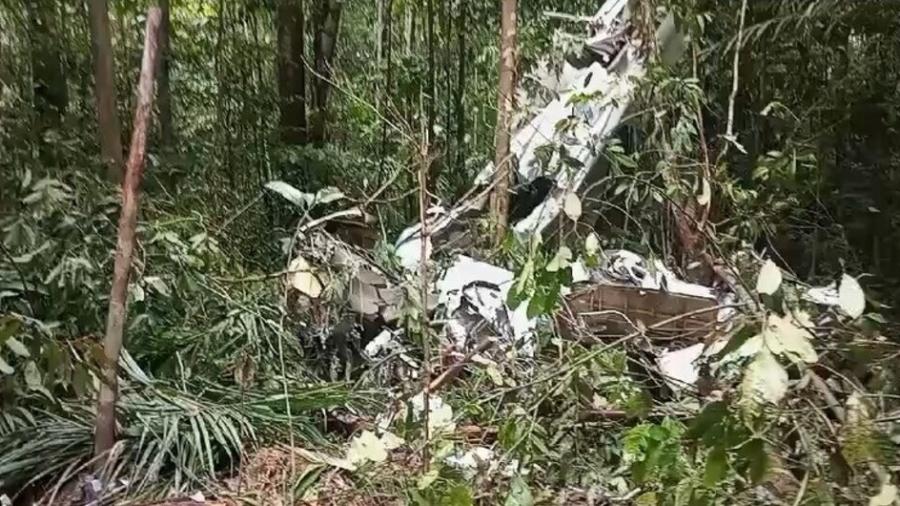


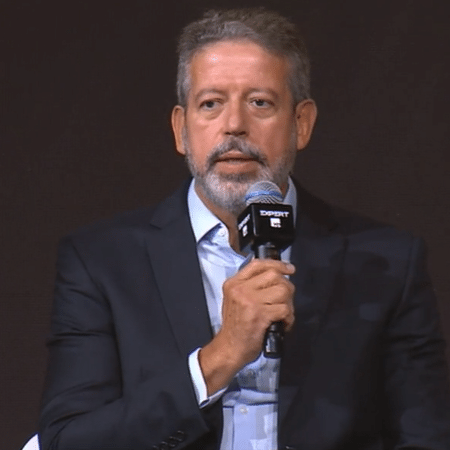
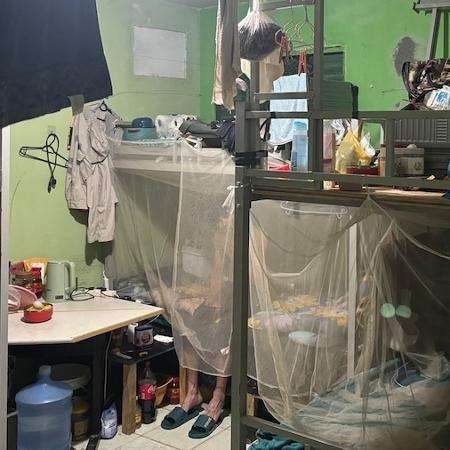

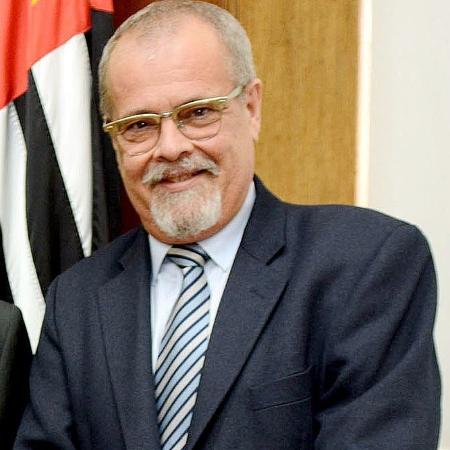
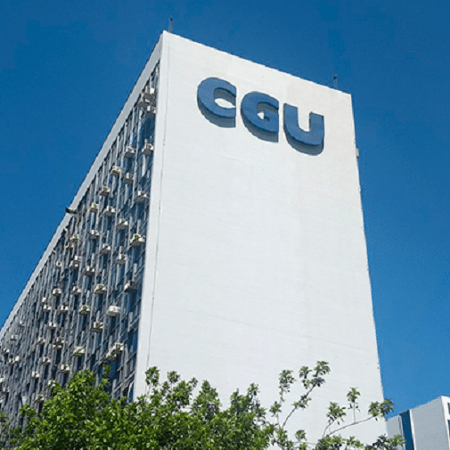
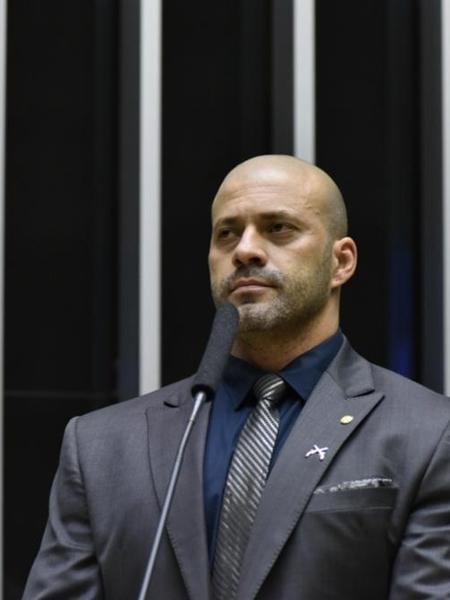
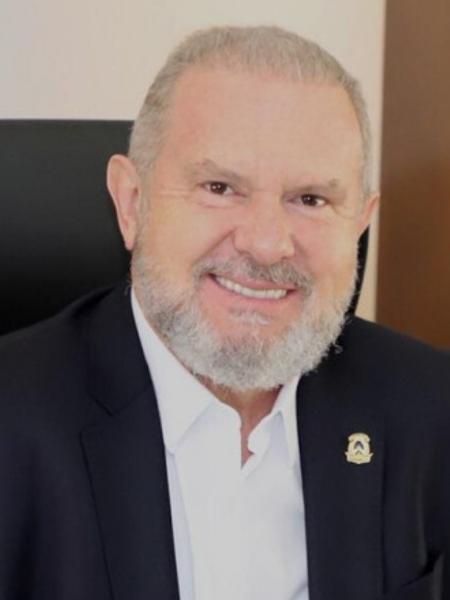
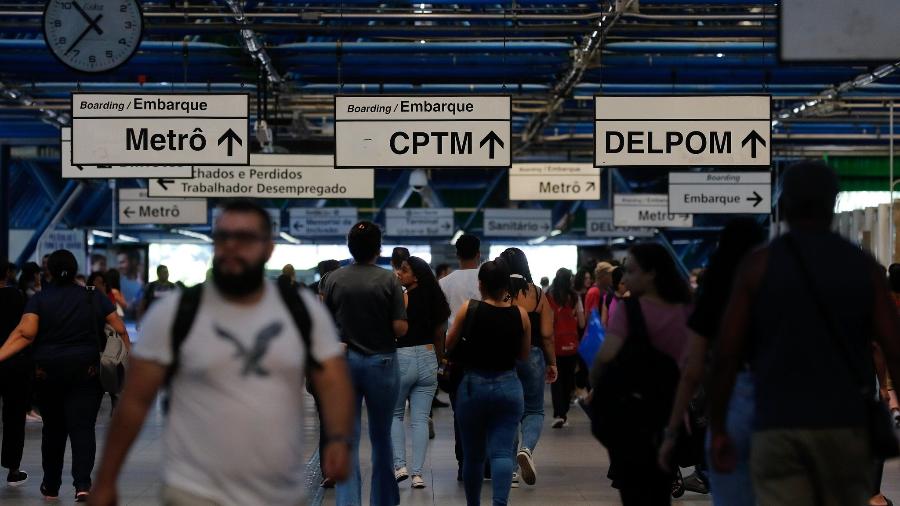
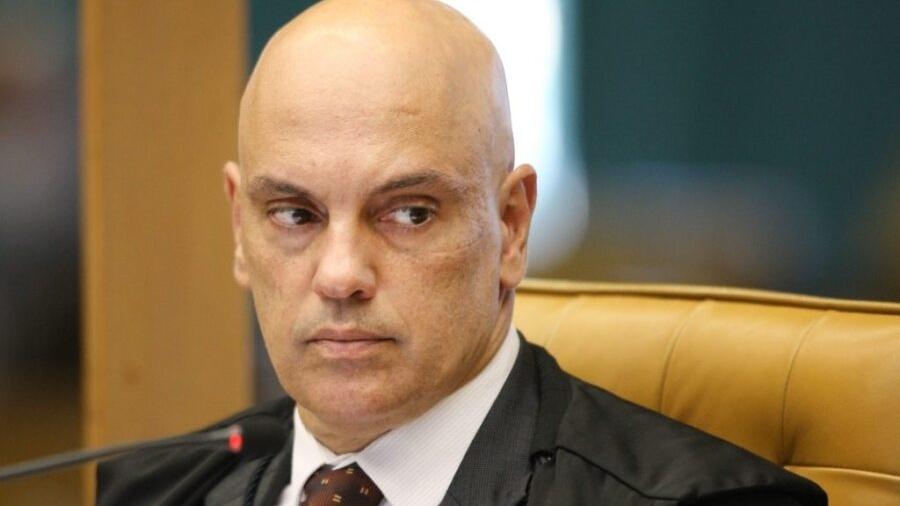
ID: {{comments.info.id}}
URL: {{comments.info.url}}
Ocorreu um erro ao carregar os comentários.
Por favor, tente novamente mais tarde.
{{comments.total}} Comentário
{{comments.total}} Comentários
Seja o primeiro a comentar
Essa discussão está encerrada
Não é possivel enviar novos comentários.
Essa área é exclusiva para você, assinante, ler e comentar.
Só assinantes do UOL podem comentar
Ainda não é assinante? Assine já.
Se você já é assinante do UOL, faça seu login.
O autor da mensagem, e não o UOL, é o responsável pelo comentário. Reserve um tempo para ler as Regras de Uso para comentários.